Creating Home Through New Concept
Home Improvements That Will Save You Money in the Long Run!

Smart Home Tech
Innovative home products help bring technology and humans together to make their lives easier and more sophisticated.
Tankless Water Heater
If you’re environmentally conscious and looking to save money and energy, adding a tankless water heater can help you achieve your goals.
Energy Efficient Appliances
Energy-efficient appliances are a necessity in this modern world, which not only reduces maintenance costs but also helps protect the environment.
How Energy-Efficient Houses Are Built While Saving Money!

Pick The Right Building Materials
Selecting suitable materials helps develop an excellent infrastructure that is also environmentally friendly.

Use Proper Insulation
Thermal-resistant materials and structural elements help retain heat, thus reducing the use of electrical appliances.

Install Efficient Appliances
One of the best ways to reduce costs is to switch to solar-powered intelligent home appliances.

Integrate ‘Smart Home’ Systems
Smart home devices are built on conserving energy yet, delivering to the needs of homeowners

Harness Solar Power
A cost-effective way to save tons of money on electricity is by using solar energy to power devices.

Get A LEED Certification
Getting a green building rating certification means higher building value and greater accountability in contributing to positive environmental changes.
Help You Save Money For a Mortgage!
- Refinance Your Mortgage
- Make an Extra Payment Every Year
- End Your PMI Early
- Review Your Budget
Register Now!
Latest From Our Blog
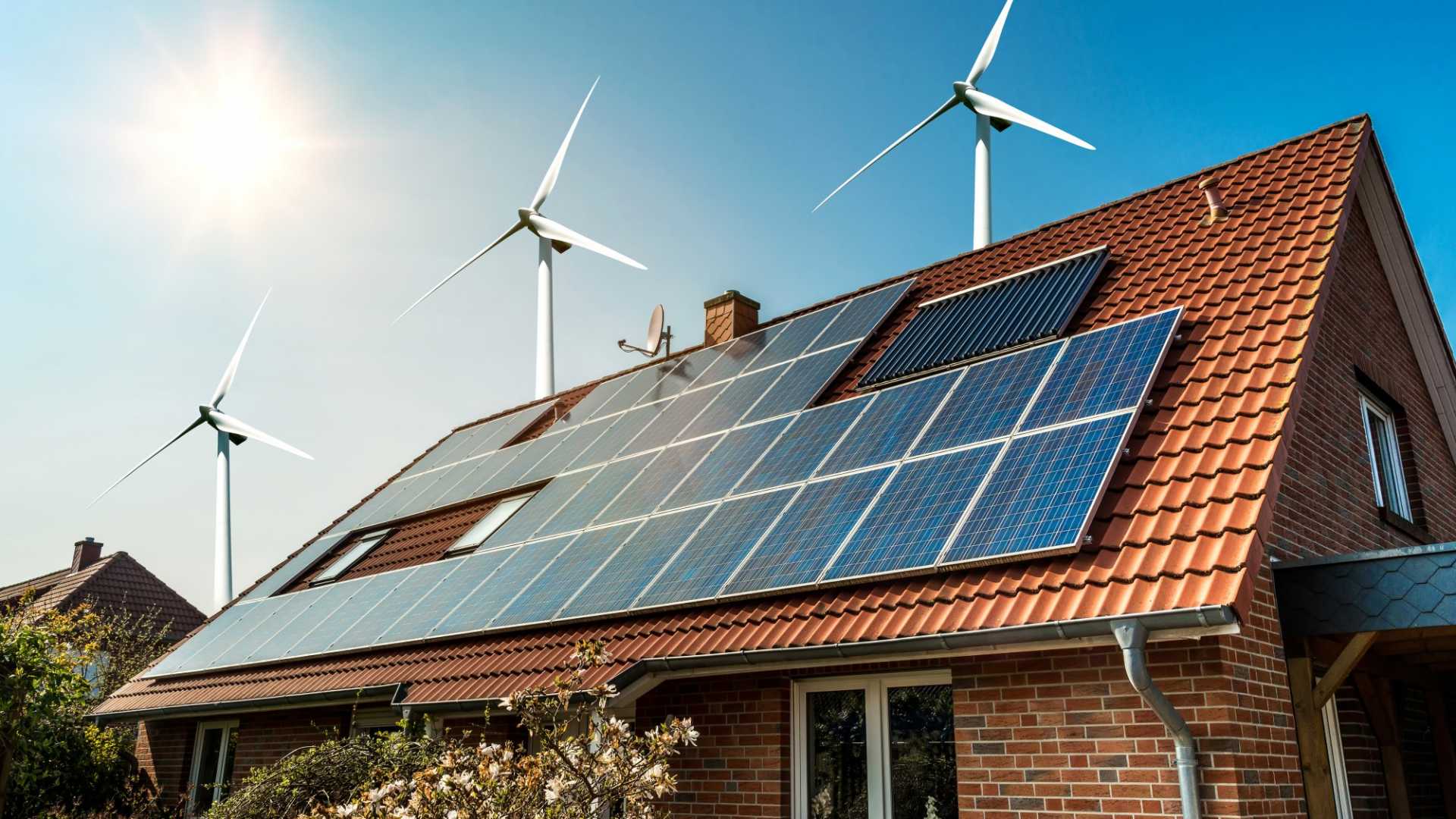
The Ultimate Guide to Increasing Your Home’s Energy Rating and Saving Money
Looking to increase your home’s energy rating and save money on your power bill? You’re in the right place! In this guide, we’ll show you how to make your home more energy-efficient, so you can slash your power costs and do your bit for the environment.
Understanding Your Home’s Energy Rating
Your home’s energy rating is a measure of its energy efficiency. The higher the rating, the more efficient your home is.
There are a number of things that contribute to your home’s energy rating, including the type of insulation you have, the type of windows and doors you have, and the way your home is heated and cooled.
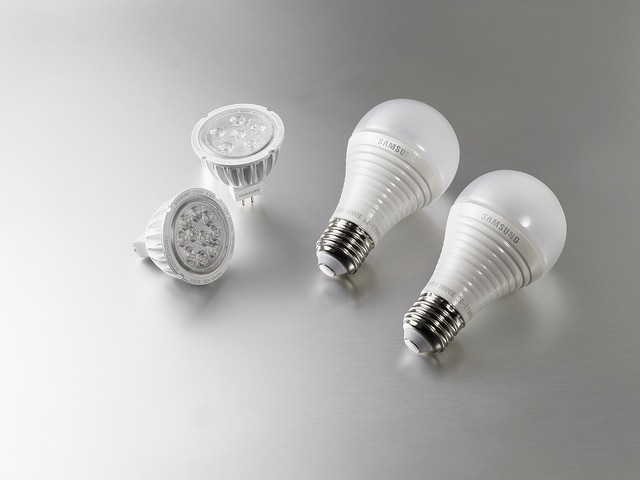
Improvements to your home’s energy efficiency can be a great way to save money on your energy bills. It can also make your home more comfortable to live in and help reduce your carbon footprint.
If you’re thinking about making improvements to your home’s energy efficiency, it’s important to understand how your home’s energy rating works. This will help you identify which improvements will be most effective in increasing your home’s rating and saving you money.
Tips for Improving Your Home’s Energy Rating
There are a number of things you can do to improve your home’s energy rating and thus save money on your energy bills. Here are some tips:
Make sure your home is well insulated. This will help to keep heat in during winter and cool air in during summer, meaning you won’t have to use as much energy to heat or cool your home.
Consider installing double-glazed windows. These will help to reduce further the amount of heat lost from your home.
Use energy-efficient light bulbs throughout your home. LED bulbs are a great option as they use less energy than traditional incandescent bulbs and last much longer too.
If you have an older home, consider having it assessed for its energy efficiency rating. This will give you an idea of where improvements need to be made in order to boost your home’s rating.
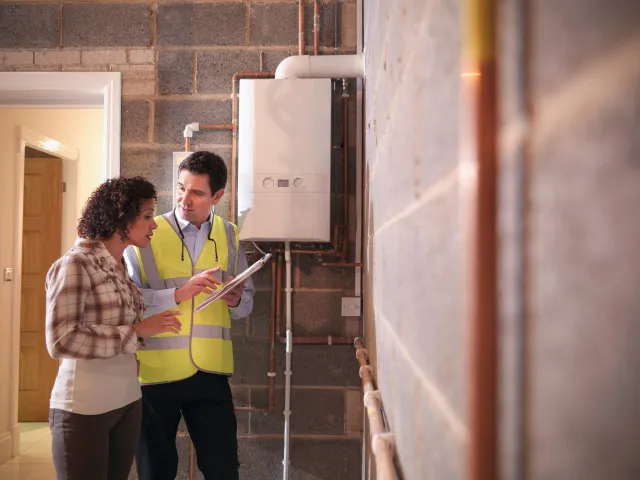
How Much Money Can You Save by Increasing Your Home’s Energy Rating?
You could save up to $3,600 a year on your energy bills by making your home more energy efficient. By increasing your home’s energy rating, you could also add value to your property.
Making your home more energy efficient will help the environment and save you money. It’s a win-win situation! Here are some ways you can increase your home’s energy rating:
- Insulate your home
- Use double-glazed windows
- Seal any gaps or cracks in walls, floors, and ceilings
- Use draught excluders around doors and windows
- Install low-energy lighting throughout your home
- Educate yourself and your family about saving energy
Making your home more energy efficient doesn’t have to be a daunting task. With a little bit of planning and some simple changes, you can make a big difference in both your home’s energy rating and your monthly bills. We hope this guide has given you some useful tips on how to get started. Remember, even small changes can make a big difference in the long run!

The Smart Homeowner’s Guide to Cutting Costs: Expert Strategies
Homeownership is a huge investment. Not only do you have to come up with a down payment and closing costs, but you also have to budget for things like repairs, renovations, and of course, utilities. It can be tough to keep all of these balls in the air – especially when unexpected expenses pop up.
But don’t worry, we’re here to help. In this guide, we’ll share expert strategies for reducing your energy, maintenance, and mortgage expenses.
Cutting Energy Costs
One of the best ways to save money as a homeowner is to cut your energy costs. Here are some simple tips for doing just that:

Get a smart thermostat: A smart thermostat can help you save money on your energy bill by automatically adjusting the temperature in your home based on your schedule and activity level.
Upgrade your windows and doors: By upgrading to newer, more energy-efficient models, you can help keep your home’s temperature regulated, saving you money on your energy bill.
Add insulation: Adding insulation to your attic or walls is another great way to keep your home’s temperature regulated and lower your energy costs.
Cutting Maintenance Costs
As a homeowner, you are always looking for ways to save money. But, with the high cost of living, it can be difficult to find ways to reduce your expenses. Luckily, there are a few expert strategies you can use to cut your energy, maintenance, and mortgage expenses.
Use energy-efficient appliances: One of the best ways to reduce your energy bills is to use energy-efficient appliances. These appliances use less electricity and water, saving you money each month.
Reduce your water usage: You can also save on your monthly water bill by reducing your water usage. Some simple ways to do this include turning off the water while brushing your teeth and taking shorter showers.
Refinance your mortgage: If you struggle to make your monthly mortgage payments, consider refinancing your loan. This can help you get a lower interest rate and lower monthly payments.
Make your home more energy-efficient: Finally, one of the best ways to reduce your monthly expenses is to make your home more energy-efficient.
Cutting Mortgage Expenses
No question is, owning a home comes with a lot of costs. But there are plenty of ways to cut those costs, whether it’s Energy expenses, Maintenance costs, or Mortgage expenses.

One way to cut mortgage expenses is to get a shorter loan term. A 15-year mortgage will have higher monthly payments, but you’ll save a ton in interest over the life of the loan. Another way to reduce your mortgage expense is to make extra payments each year. Even an extra $100 per month can shave years off your loan and save you thousands in interest.
You can also save on your energy bills by making simple house changes. For example, switch to LED light bulbs, which use less energy and last much longer than traditional incandescent bulbs.
So don’t be afraid to roll up your sleeves and start saving on your biggest expenses. These strategies will help you keep more money in your pocket every month, giving you peace of mind and financial security for years to come.

Cut Your Mortgage and Save on Energy Costs
If you’re like most New Zealanders, your mortgage is one of your biggest expenses. So what if we told you that there was a way to cut that cost and save on energy costs at the same time? It may sound too good to be true, but it’s not!
With a few simple changes, you can make your home more energy-efficient and reduce your carbon footprint. In turn, you’ll save money on your mortgage and power bills.
Ready to learn how? Keep reading for our top tips on cutting your mortgage and saving on energy costs in New Zealand.
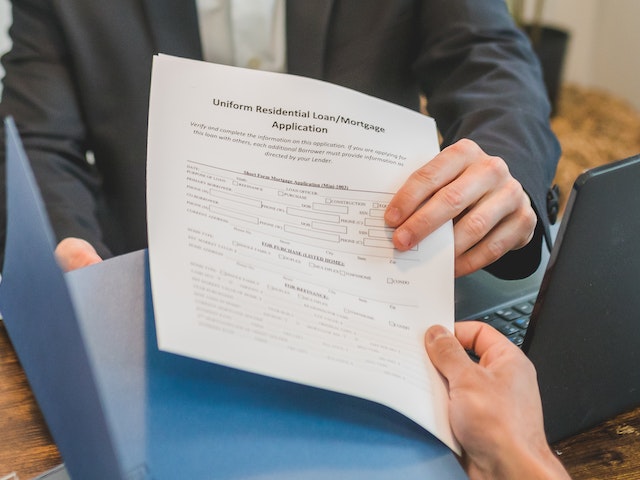
Introducing the Homestar rating system
The Homestar rating system is a way for New Zealanders to measure the energy efficiency of their homes. The higher the rating, the more energy efficient the home is.
The idea behind Homestar is that making our homes more energy efficient is good for the environment and our wallets. When we use less energy, we save money on our power bills and reduce our reliance on polluting fossil fuels.
And as a bonus, more comfortable homes are easier to sell and command higher prices.
Save on Energy Costs
The average New Zealand household spends about $2,700 a year on energy costs, so any way that you can save on your energy costs is worth considering. Here are some tips to help you save on your energy costs in New Zealand:
- Use less electricity. There are a number of ways to use less electricity around your home, such as using energy-efficient appliances, turning off lights when you leave a room, and using natural light where possible.
- Use less hot water. You can save on hot water costs by installing a low-flow showerhead, only boiling as much water as you need, and washing your clothes in cold water.
- Use insulation. A well-insulated home will retain heat better in winter and stay cooler in summer, both of which will help you save on energy costs.
- Use renewable energy sources. If you have the opportunity to install solar panels or a wind turbine, you could significantly reduce your energy costs over time.
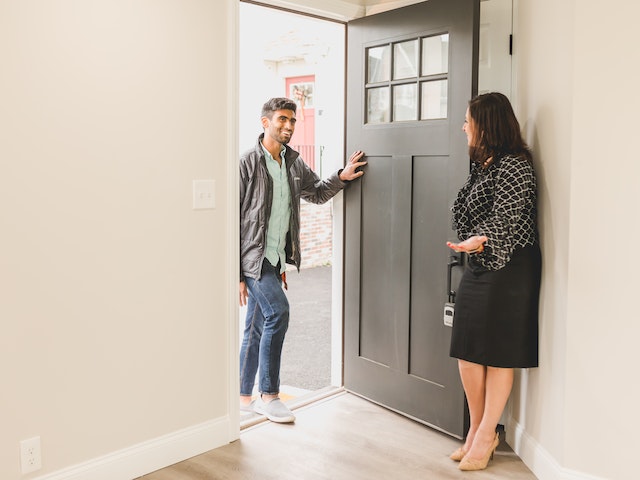
New Zealand’s Best Mortgage Deals
When it comes to finding the best mortgage deal in New Zealand, there are a few things you need to keep in mind.
- Make sure you compare interest rates from different lenders.
- Ask about any fees or charges that may be associated with the loan.
- Make sure you understand the terms and conditions of the loan before signing anything.
If you’re looking for ways to save on your mortgage and energy costs, then consider making some changes to your home in New Zealand. By insulating your home and installing energy-efficient appliances, you can make a significant dent in your monthly expenses.
And by shopping around for a better mortgage rate, you can reduce the amount of interest you’ll pay over the life of your loan. So if you’re ready to start saving, take a look at these tips and see how much you could be saving each month.

Make the Most of Your Money: Strategies for Lowering Your Mortgage
A mortgage is likely to be the biggest financial commitment you’ll ever make, so it makes sense to try and pay it off as quickly as possible. While there are a number of ways to achieve this – making extra repayments, redrawing from your savings, or even selling your house – one of the simplest and most effective methods is to refinance your mortgage.
In this blog post, we’ll explore how refinancing can help you lower your mortgage and save money in New Zealand. We’ll also provide some useful tips on how to get the best deal possible.
The Different Types of Mortgages
There are two main types of mortgages in New Zealand: fixed rate and floating rate.
Fixed-rate mortgages have interest rates that are set for a specific period, usually between one and five years. This means that your repayments will stay the same for that period, regardless of any changes in the wider market.
This can give you peace of mind and budgeting certainty, but you may end up paying more in interest if rates fall during your fixed rate period.
Floating-rate mortgages have interest rates that move up or down in line with market conditions. This means your repayments can go up or down over time, depending on how interest rates change.
Floating-rate mortgages often start with lower interest rates than fixed-rate mortgages, so they can be a good option if you expect rates to fall over time. However, you need to be prepared for higher repayments if rates rise.

How to Lower Your Mortgage
There are a few things you can do to lower your mortgage in New Zealand. If you have a home loan, you might be able to refinance to a lower interest rate.
You can also make extra repayments on your mortgage, which will reduce the amount of interest you pay over the life of the loan.
If you’re looking to buy a home in New Zealand, there are a few things you can do to help keep your mortgage costs down.
- One option is to buy an older home that doesn’t need as much work.
- You could also look into buying a smaller home or one in an area with lower property prices.
- Another option is to put down a larger deposit, which will reduce the amount you need to borrow and, therefore, the interest you’ll pay over time.
Whatever route you choose, it’s important to shop around and compare different offers before making any decisions. This will help ensure that you get the best deal possible and end up with a lower mortgage that works for you and your budget.
There’s no doubt that lowering your mortgage is a great way to save money in New Zealand. By following the strategies outlined in this article, you can make significant progress toward paying off your mortgage sooner.
Remember to shop around for the best deals on interest rates and fees, and don’t be afraid to negotiate with your bank or lender. With a little bit of effort, you can make big savings on your mortgage repayments.

How to Improve Your Home and Save Money
New Zealand is a beautiful country, and its homeowners always look for ways to improve their homes. But with the high cost of living, it cannot be easy to justify spending money on home improvements.
Fortunately, there are plenty of ways to improve your home without breaking the bank. From energy-saving tips to DIY projects, read on to learn more about how you can make your home even better without spending a lot of money.
Do-It-Yourself Home Improvement Projects
Whether you’re a first-time homebuyer or a seasoned homeowner, there’s always room for improvement regarding your abode. But making these improvements doesn’t have to come at a hiTherect. There are plenty of ways to save money while still giving your home the TLC it deserves.
Not sure where to begin? We’ve put together a list of easy and affordable DIY projects that will help improve your home without breaking the bank:
Paint your front door: A fresh coat of paint is an easy and inexpensive way to add curb appeal to your home. Just make sure to use high-quality paint and primer for the best results.
Freshen up your walls: If painting an entire room sounds like too much work, add a new coat of paint to one feature wall instead. This will instantly brighten up any space and make it feel more inviting.
Replace cabinet hardware: Give your kitchen or bathroom cabinets an update by replacing old hardware with new pulls or knobs.
Ways to Improve Your Home
There are many ways to improve your home in New Zealand and save money simultaneously.
One way to do this is to insulate your home. This will help to keep your home warm in winter and cool in summer and will also help to reduce your energy bills.
Another way is to install solar panels. Solar panels can provide free electricity, saving you much money over time.
Finally, purchase energy-efficient appliances. Energy-efficient appliances use less electricity than standard appliances and can save you a significant amount of money on your energy bills over time. By following these tips, you can easily improve your home in New Zealand and save money simultaneously.
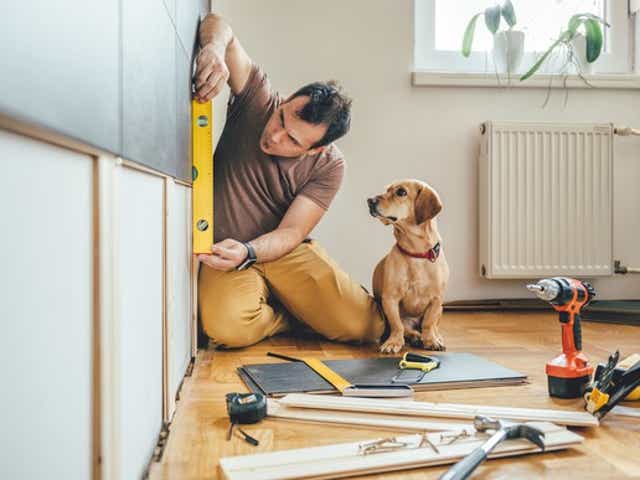
Money Saving Tips for Home Improvement in New Zealand
- Get multiple quotes: When it comes to home improvement, it’s important to get multiple quotes from contractors. This will help you compare prices and find the best deal.
- Shop around for materials: Don’t just buy the first thing you see when shopping for materials. Compare prices at different stores to find the best deal.
- Do it yourself: If you’re handy, consider doing some work yourself. This can save you a lot of money.
- Negotiate: Don’t be afraid to negotiate with contractors. You may be able to get a better price if you do.
- Use coupons and discounts: Always look for coupons and discounts when shopping for home improvement supplies. This can help you save a lot of money.
Remember, even small changes can make a big difference when it comes to saving money on your energy bills.
